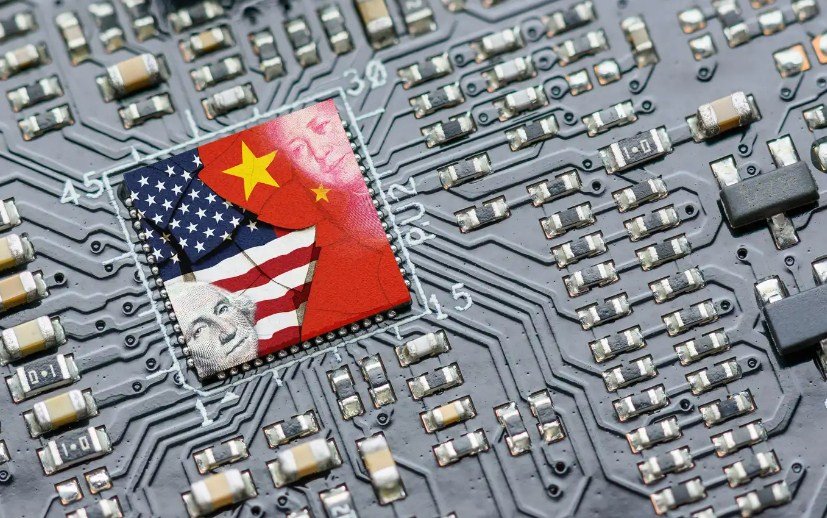US plans to tighten export controls on Nvidia’s A800 and H800 chips to China
The US Department of Commerce is reportedly considering further controls that may restrict exports of Nvidia’s A800 and H800 products to China, according to multiple media sources. These chips are designed for artificial intelligence applications and are manufactured by Taiwan Semiconductor Manufacturing Corp (TSMC) and Samsung Electronics. The US government has been ramping up efforts to cut off China from key technologies that can support its military and economic ambitions.
The new move is aimed at preventing China from acquiring Nvidia’s latest AI chips, which the company created following the introduction of export curbs in October 2023. The previous restrictions banned Chinese companies from buying advanced chips and chip-making equipment without a license. Nvidia’s A800 and H800 chips are based on a different architecture and do not require a license to sell to China, according to Bloomberg.
Nvidia warned that if the US imposes new restrictions on its AI chip sales to China, it would result in a “permanent loss of opportunities” for the US industry to compete and lead in one of the world’s largest markets. The company’s chief financial officer, Colette Kress, said she did not anticipate any “immediate material impact” but tighter curbs would impact earnings in the future.
Asian semiconductor stocks tumble amid Nvidia’s woes
The news of the potential US export restrictions on Nvidia’s AI chips sent shockwaves across the Asian semiconductor sector, which relies heavily on the demand from China. Shares of TSMC, which produces all of Nvidia’s advanced AI chips, dropped 3.5% on Thursday, while Samsung Electronics, which also supplies Nvidia with some of its chips, fell 2.4%. Other chipmakers in the region, such as SK Hynix, Hua Hong Semiconductor, and SMIC, also suffered losses.
The PHLX Semiconductor Sector index, a gauge comprised of 30 chip stocks, was on track to erase about $73 billion in combined market value. The index has been under pressure since the US announced its first round of export controls in October 2023, which affected companies such as Huawei, ZTE, and SMIC. The latest curbs target Nvidia, which is one of the world’s largest chipmakers and a leader in the AI field.
The US export restrictions on Nvidia’s AI chips could have far-reaching implications for the global semiconductor industry, which is already facing supply chain disruptions, chip shortages, and rising costs. The AI chip market is expected to grow rapidly in the coming years, as more applications and devices require high-performance computing and data processing. Nvidia’s A800 and H800 chips are among the most advanced and powerful in the market, and are used by cloud service providers, data centers, and research institutions.
Hong Kong internet stocks rebound after sell-off
While the Asian semiconductor sector was hit hard by the US export restrictions on Nvidia’s AI chips, the Hong Kong internet sector saw a rebound after a recent sell-off. The Hang Seng Tech Index, which tracks the performance of the largest technology companies listed in Hong Kong, rose 2.3% on Thursday, recovering some of the losses from the previous day.
The Hong Kong internet sector has been under pressure since the Chinese government launched a regulatory crackdown on the tech industry, targeting issues such as data security, antitrust, and online content. The crackdown has affected some of the biggest names in the sector, such as Alibaba, Tencent, Meituan, and Didi. The Hang Seng Tech Index has plunged more than 40% since its peak in February 2023, wiping out billions of dollars in market value.
However, some analysts and investors see signs of stabilization and opportunities in the Hong Kong internet sector, as the regulatory uncertainty eases and the valuations become more attractive. Some of the companies have also announced positive earnings results, showing resilience and growth amid the challenges. For example, Alibaba reported a 29% increase in revenue and a 12% increase in net income for the quarter ended September 2023, beating analysts’ expectations.

